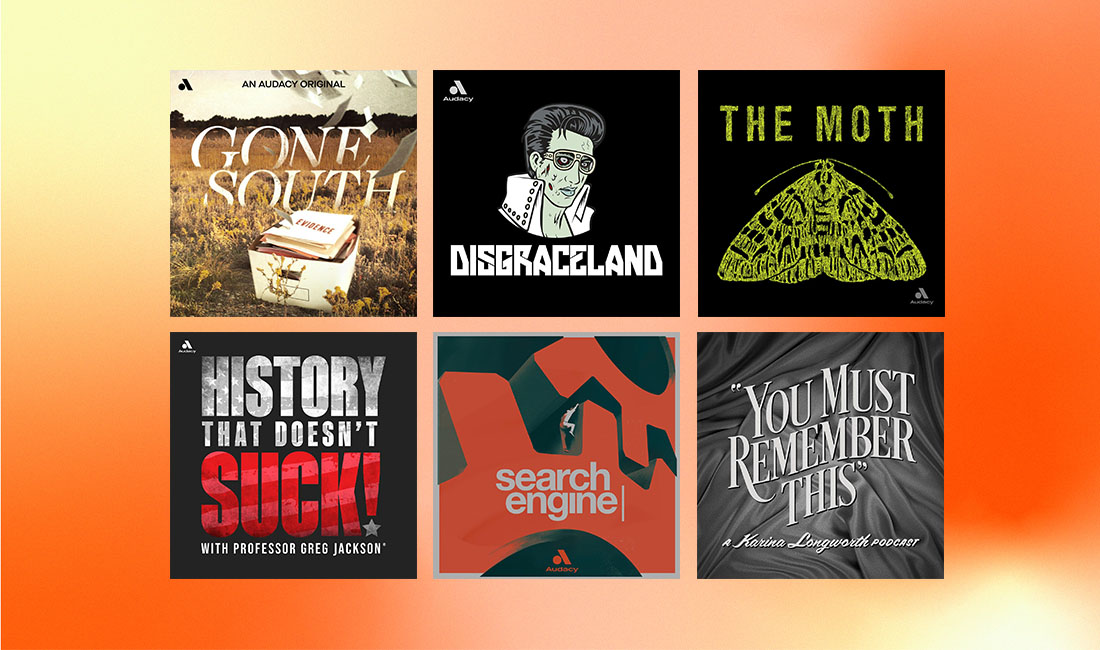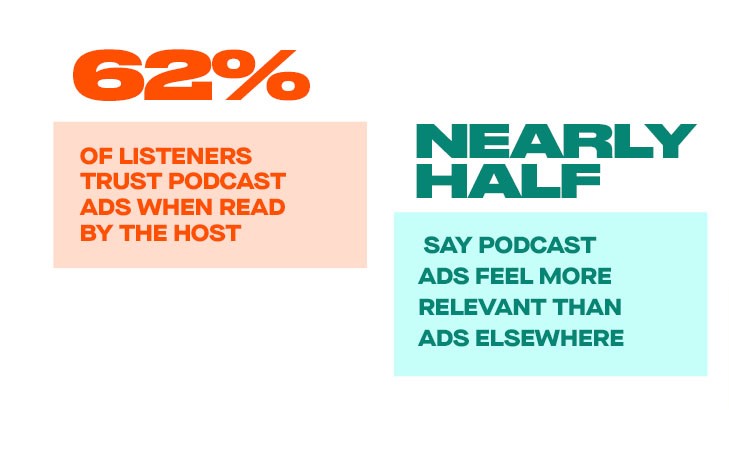From Earbuds to Emotions: The Power of Podcast Storytelling
Every September 30th, the podcasting world pauses to celebrate International Podcast Day — a chance to shine a light on the creators who make this medium what it is.
As podcasting continues to explode in popularity, there’s one key puzzle piece fueling that rise. The hosts and creators who bring ideas to life, transport us into worlds we’ve never visited, and make even the densest topics feel magnetic. They’re the ones shaping culture and elevating the listener experience — one story at a time.
The Power of Storytelling
From true crime to history to Hollywood drama, many of the podcasts we can’t stop listening to are driven by one thing: unforgettable storytelling. And great storytellers do three things exceptionally well:
- They connect deeply: Listeners don’t just tune in; they trust, confide in, and build routines around their favorite hosts.
- They keep it authentic: True passion, no filters, just raw, human connection.
- They build a universe for you to explore: Where every listen feels like stepping into a new world.
This is why the podcast space has produced some of today’s most unforgettable storytelling experiences. Think of Disgraceland unraveling rock-and-roll scandals with cinematic flair. Or Gone South digging into chilling true crime with atmosphere so rich you can almost feel the humidity. Or The Moth, the gold standard of personal storytelling that can make you laugh, cry, or call your mom — sometimes all in a single commute.
Podcasts like History That Doesn’t Suck or Search Engine make learning irresistible, weaving knowledge into narratives you want to binge. And then there’s You Must Remember This, where Hollywood’s forgotten history becomes vivid again through narrative craft.
Each of these shows proves the point: story is the engine, and creators are the drivers.

A Masterclass in Storytelling with Professor Greg Jackson of History That Doesn’t Suck
Take Professor Greg Jackson, creator of History That Doesn’t Suck, who’s mastered the art of turning history into theater for the ears.
When asked how he makes dense or complex topics engaging, Greg says:
“You have to put that story back into history. It can be a very complex subject. Whether it’s tax policy, international trade, or industrial revolution. You might even feel your eyes glaze over right now. But [we need to] let the listener really connect… Let me give you an example. One of my favorite go-tos when people ask me this question is all the way back to episode two.
That episode is on colonial tax policy, which should be by every stretch of the imagination as boring as it gets. But what I do is I start with Patrick Henry. You meet Patrick Henry as a young 30-year-old fresh colonial legislator in Virginia, and he’s sounding off, getting all riled up as he starts talking smack about King George to the point that people start screaming: “that’s treason!” So you’re meeting this very fiery, young, passionate guy who’s getting himself into a world of trouble. And that’s the cold open. You’re hearing about it from the lens of how this impacts this individual.”
That’s the secret sauce. By giving history a human entry point — a fiery character, a relatable struggle — the story sticks.
Why does it work so well in Audio specifically? Professor Jackson has a theory:
“When it comes to history and stories, we live in this modern world. But you think about the evolution of humanity, and we have tens of thousands of years of oral tradition. Our brains developed around the oral telling of tales, myths, legends. It’s the way we are wired.”
Storytelling isn’t just content — it’s ancient, it’s cultural, it’s how we’ve always made sense of the world. Podcasting is simply the modern campfire.
Building Community, One Story at a Time
Another thing podcast creators excel at? Turning listeners into communities. Greg says one of his favorite ways to connect with his audience is on his “The Unlikely Union” tour:
“I’d say my absolute favorite is going on tour. I love getting around the country and getting to meet [listeners] personally.”
That intimacy is unique to Audio platforms like podcasts. You’re not just passively scrolling — you’re sharing time, stories, and even live experiences with hosts who feel like friends.
Where Stories and Brands Intersect
Brands have noticed the power of podcasts. And it’s no surprise why: podcast ads work because they’re not interruptions — they’re extensions of the story.
Professor Jackson puts it best:
“Personally, I like to tell the story of the brand. [Sometimes] I turn it into a micro-history lesson. So my listeners stick around for that. I’ve actually received comments from my listeners telling me how much they enjoyed the ad because the ad was a story. It’s also important that creators, at least this is how I think of it — that creators remember these advertisers are making your dream come true. I mean, they are the funding that allows you to do this. You want to take care of them. And it’s important to be somewhat selective on your ads, right? And then when I write that ad, honestly, I treat it like I’m writing a miniature episode. I want to learn about the company and invest back in them the same way that they’re investing in my show.”
This is why podcast advertising is among the most trusted forms of media:

When ads feel like stories — not breaks — the result is connection, trust, and action.
Celebrating Storytellers Today
On International Podcast Day, we’re not just celebrating a medium. We’re honoring the voices behind it — the creators who make us laugh, cry, and see the world differently.
Podcasters are today’s master storytellers. They’re not just making content. They’re shaping culture. And for listeners and brands alike, that’s the real magic.
Want to talk more about reaching your target audience?
Let´s TalkMRI-Simmons Podcast Study, April 2024
The Advertising Landscape, Sounds Profitable, 2025
